|
| |
| |
up |
|
| |
|
| |
 Socio-economic news Socio-economic news
Companies continue to face difficulties due to the ever present health crisis. As in the first wave, inDUfed continues to keep you informed of the measures taken by the government, parliament and the Group of 10 (social partners). Please do not hesitate to contact the Social Department for any questions you may have. |
| |
up |
| |
 Cefoverre & the Social Fund of the Paper- and Board converting Industries Cefoverre & the Social Fund of the Paper- and Board converting Industries
The Social Fund of the Paper- and Board converting Industries, PaperPackSkills will intervene in the cost of training courses listed on the sectoral training offer program for the paper- and board converting companies, organised by Cefoverre. Cefoverre will develop training programs tailored to paper and board converters.
This interesting cooperation between Cefoverre and PaperPackSkills creates educational opportunities for the companies who can develop the skills of their workers at low cost.
For more information, please visit the website of PaperPackSkills (vanaf januari  PaperPackSkills.be) of PaperPackSkills.be) of  fetra.be/fbz fetra.be/fbz |
| |
up |
| |
 Social elections and covid-19 crisis Social elections and covid-19 crisis
The covid-19 crisis also had an impact on the social elections and several additional complexities were encountered. The suspending of the procedure and the postponement of the elections from May 2020 to November 2020 resulted in a procedure that took much longer than normal. This may also have had an impact on the lists drawn up and submitted just before the postponement. These may have become obsolete due to changes in the company structure (reorganization, departures, etc.).
The organization of the election day itself was also quite different due to Covid.
A number of lessons learnt from this special situation underline the need to amend the applicable legislation. |
| |
up |
|
| |
up |
| |
 Consequences of Wezer Ruling in Flanders Consequences of Wezer Ruling in Flanders
The VMM has developed a tool to evaluate the impact of an individual activity on the water quality of the surface water. The tool will be used from 2021 onwards and integrated in the environmental impact assessment.
On this dedicated webpage you can find the tool and more background information  (in Dutch only) (in Dutch only)
|
| |
up |
| |
 Public consultation River Management Plans Flanders Public consultation River Management Plans Flanders
The river management plans for Meuse and Scheldt are under public consultation until the 14th of March 2021. The documents can be found on this web page  https://www.volvanwater.be https://www.volvanwater.be
Additional investments for 3.8 billion € (2022-2027) are listed. The proposed measures are prioritized and area specific. They can be consulted in the individual sub-basin plans.
|
| |
up |
| |
 Framework for prioritizing water consumption in times of extreme water scarcity Framework for prioritizing water consumption in times of extreme water scarcity
Over the past year the building blocks of a framework to help decisionmakers in prioritizing water consumption in times of water scarcity have been developed. A set of indicators, figures on water availability and demand, lists with possible measures, impacts and costs estimates are now available. Next step will be to define the principles by which to prioritize the measures. How this framework will be used in final decision making is still an open question to be answered in the first half of 2021 as the tool should be ready to be used (if necessary) in the summer of 2021 as a policy-supporting instrument. Click here for more background info: 
|
| |
up |
|
| |
|
| |
 Energiebeleidsovereenkomst (EBO) Flanders: impact COVID Energiebeleidsovereenkomst (EBO) Flanders: impact COVID
The commission EBO published a decision on their website clarifying how to deal with the economic impact of the COVID crisis on investments in energy efficiency laid down in the energy plans.
To read the decision 
|
| |
up |
| |
 Prioritise renovation in the national recovery and resilience plans Prioritise renovation in the national recovery and resilience plans
At the European Summit in July, EU leaders agreed on a recovery package and on a 2021-2027 budget to help rebuild the EU after the pandemic and boost investment towards green and digital transitions. Belgium has the opportunity to receive €5,15 billion form that package.
This is a unique opportunity to allocate at least part of this money towards energy renovation.
Member States are currently drafting National Recovery and Resilience Plans to be submitted to the European Commission, outlining the allocation of the funding awarded by the EU Recovery Package.
The Glass Federation together with Renovate Belgium is working hard on motivating the different Regions to put Energy Renovation as a focal point in their plans.
|
| |
up |
| |
 Carbon border adjustment mechanism (CBAM) – position on the EU consultation Carbon border adjustment mechanism (CBAM) – position on the EU consultation
As part of the Green Deal, the European Commission announced its intention to propose by mid-2021 a pilot carbon border adjustment mechanism (CBAM) for a few sectors.
In the absence of equivalent measures taken by other regions of the world regarding carbon pricing, CBAM is one of the possible options to protect EU industries against the risk of carbon leakage.
In this respect, the consultation on CBAM has been carefully examined by our European associations and some remarks can be made.
For a fair (for EU industries) CBAM, the following points have to be taken into consideration:
- WTO compatibility and attention to the relations with trade partners;
- The interactions between a CBAM and the EU ETS;
- The possible impacts on the entire value chain of a sector;
- Fair competition between competing materials.
The full position papers are available upon request at inDUfed
|
| |
up |
| |
 Accord de branche – yearly evaluation Accord de branche – yearly evaluation
In September 2020, the results of 2019 were presented to the Walloon region for each sectoral agreement that inDUfed represents and manages (FIV, Cobelpa, Fetra-Febelgra). The results are on track to reach the 2023 target. Companies that under-preformed had to present their action plan to the board of directors of the AdB. The presentations and explanations prove that the will of the companies to reduce CO2 emissions and to work on energy efficiency is still very much present. A question remains on how the COVID-crisis will impact the results and how this has to be managed in the monitoring of next year and maybe the years to come. inDUfed will work closely with the authorities and its members on this topic.
|
| |
up |
|
| |
|
| |
 SCIP – Database SCIP – Database
Substances of Concern in Products, or SCIP, is a concept related to the last review of the Waste Framework Directive. From the 5th of January 2021 all products that contain a substance of concern, or a part of a product that contains such a substance should be registered in the SCIP-database. A substance of concern is a substance listed in the Candidate List of substances of very high concern for Authorisation or SVHC. The threshold for a product to be registered in the SCIP-DB is the same as the one mentioned in art. 33 of REACH, namely 0,1%w/w. |

|
|
| |
up |
| |
 German Mineral Oil ordinance German Mineral Oil ordinance
The German government has notified a new ordinance on mineral oil (MOH) in Food Contact Materials and Articles (FCMA). The German legislation has not set a limit for the mineral oil saturated hydrocarbons (MOSH), however the migration of mineral oil aromatic hydrocarbons (MOAH) should not exceed 0,5 mg per kg of food or 0,15mg/kg in case a migration test is done with a simulant.
In short the use of a functional barrier is obligatory when recycled board as a FCMA is used, unless it is proven that migration to the food can be excluded or the food producer declares he takes over the responsibility to provide a functional barrier.
This ordinance is in many ways the wrong approach. For example: carton board is not the only source of mineral oil in food. There are inks, adhesives that can contain MOH that can migrate into food, but contamination can occur also during harvest, transport, or storage of the food . Secondly, this ordinance sets a limit value for all MOAH, although it has been well recognised that certain categories of MOAH are less of an issue. The main health concern is related to certain substances which may be present in the 3 to 7-ring polycyclic aromatic fraction. In other words, it is more a question of identification than concentration.
The text can be consulted here  |
| |
up |
| |
 German Printing Inks ordinance German Printing Inks ordinance
German authorities have reinitialised the legislative procedure for their Printing Inks ordinance. Germany had already notified the ordinance in 2016. During the stand-still period that followed, many member states issued detailed opinions and comments. This time, the ordinance has not been notified although it is virtually the same as the 2016 version. Since 2016 industry has worked on an alternative legislative approach in the PIJITF (Packaging Ink Joint Industry Task Force). Here all industrial sectors from the chemical industry, ink formulators, converting sector and food producing industry are represented. The whole of the PIJITF believes that its proposal is now more relevant than ever. |
| |
up |
| |
 Danish ban on PFAS Danish ban on PFAS
In Denmark, from July 1, it is prohibited to place on the market paper and board food contact materials in which per- and polyfluoroalkyl compounds (PFAS) have been used, unless a functional barrier is included in the product.
The Danish administration has introduced an indicator value that can help the industry assess whether organic fluorinated substances have been added to paper and board. This value is 20µg org F/g paper.
Below this value, content is considered as unintentional background pollution. |
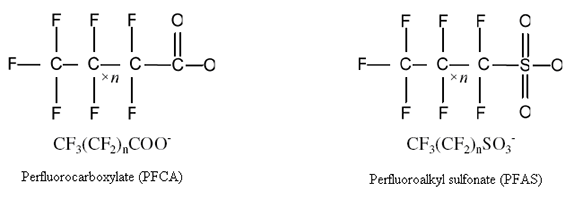
|
|
| |
up |
| |
 Recycled content in container Glass Recycled content in container Glass
FEVE has published a paper on the calculation method of recycled content in glass containers.
The recycled content of a glass container is a measure of how much recycled material is embedded in the final glass container, excluding internal cullet.
It is calculated by dividing the amount of external cullet put in the furnace by the packed glass sent outside the factory: |
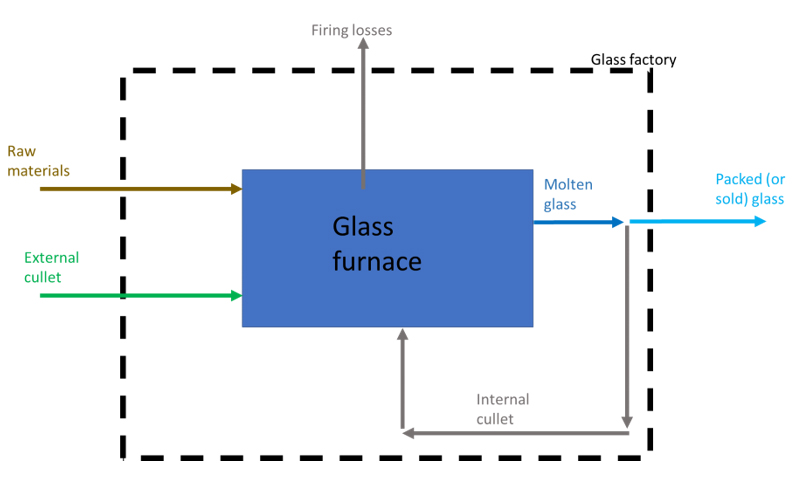
|
 |
|
| |
up |
|
| |
up |
| |
 Time to Digitalise Time to Digitalise
On October 6, inDUfed participated in a webinar organized in association with Agoria, six other sectoral federations and the UWE, to discover the major challenges facing the manufacturing industry.
“At Knauf Insulation, each worker now understands its role for the continued development of our business and is proactive.” This is the credo of Olivier Douxchamps, Plant Manager of Knauf Insulation -Visé and member of the Glass Federation.
During the webinar, Olivier Douxchamps convinced us of the crucial role of the teams in order to grow a business and become a factory of the future. |
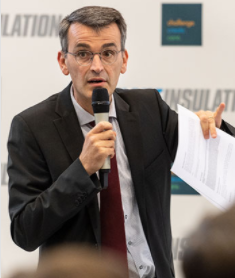 |
|
Olivier Douxchamps
Plant Manager, Knauf Insulation, Visé |
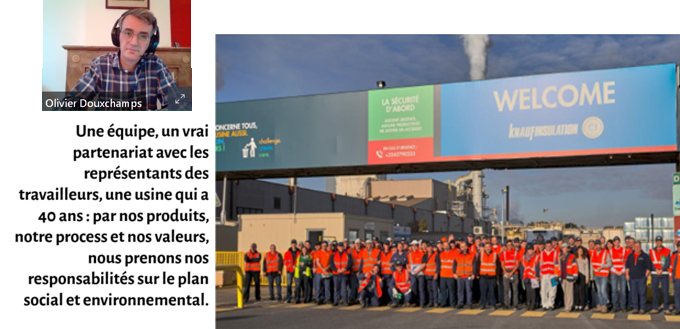 |
As a manufacturing industry, you ask yourself the following questions:
- How do I motivate and train my teams in new technologies? How do I make them want to learn continuously?
- How to optimize my production processes? What will this do for me?
- What data to collect during the production process and how to transform it into relevant information?
- How to deal with waste from purchase to sale through production? What are the benefits?
|
We can help you to boost the competitiveness of your companies  |
|
|
| |
| |
up |
| |
 “Werkplekleren”: learn a skill set in printing “Werkplekleren”: learn a skill set in printing
“Werkplekleren” is an initiative in collaboration with VDAB, PaperPackSkills and GRAFOC that allows jobseekers in Flanders to acquire the necessary skills to start working as Operator Print or Operator Drukafwerking. The internship consists of a maximum of 20 days, with a focus on the acquisition of basic graphic competences and work attitude. The program can be followed by an IBO of 5 months. However, there is no recruitment obligation.
What is an IBO? With an IBO (Individuele Beroeps Overeenkomst)you train a job seeker in your company for a maximum of 6 months. You do not pay any wages or social security, only a fixed monthly amount that covers all costs such as administrational and transportation costs. Provide PaperPackSkills with the open vacancies in your company (pc 136-pc 222), and VDAB will then look for a suitable candidate that is interested to be trained within your company. |
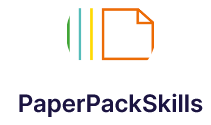
|
|
| |
up |
|
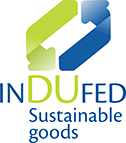

This message and any attachments are solely for the intended
recipient.If you are not the intended recipient, disclosure, copying,
use or distribution of the information included in this message
is prohibited, please immediately and permanently delete
|